When most people focus on eating well, they focus on the overall diet and large macronutrients like protein, fat, and carbohydrates. However, depending on the foods you gravitate toward and how varied your diet is, it’s still quite possible to have deficiencies in certain micronutrients—the key vitamins and minerals your body needs for optimal health and function—such as zinc.
Zinc deficiencies are particularly common in vegans and vegetarians, but many people would benefit from increasing their dietary intake of this immune-supportive mineral. As an essential mineral, zinc must be consumed through the diet because the body cannot manufacture it endogenously. Moreover, zinc is a necessary component of over 300 enzymes in the body. It is heavily involved in immune support, wound healing, building DNA and biological proteins, smell, taste, and fertility. Foods high in zinc, such as oysters, are also great foods to help prevent hair loss, as zinc plays a key role in protein production and hair follicle cell differentiation.
As winter months approach and the need to bolster your immune system defenses against every passing cold and virus becomes all the more important, try working the following foods highest in zinc into your diet.
Oysters
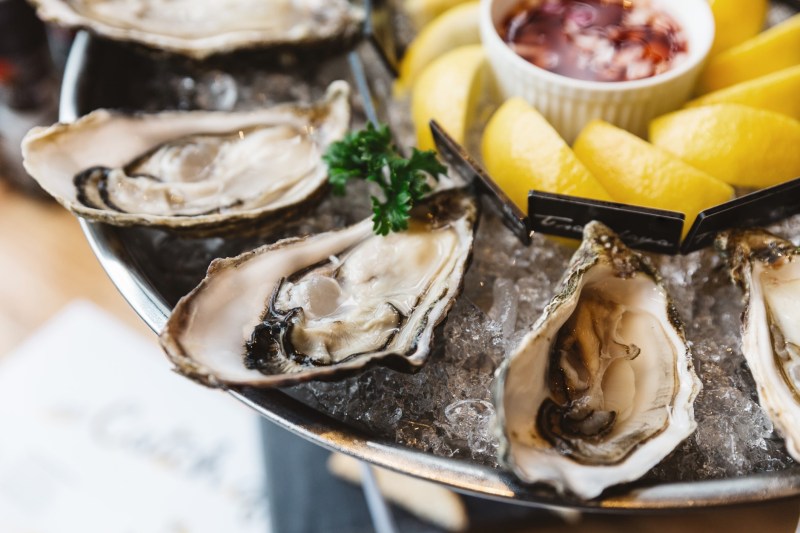
Oysters are one of the richest sources of zinc. The daily value (DV) of zinc—the recommended intake—is 11 mg. A serving of six oysters contains 52 mg or 472% of this amount. It is uncommon to have a chronically excessive intake of zinc, though if you are experiencing headaches, nausea, loss of appetite, and diarrhea, and tend to eat a lot of foods high in zinc, you may want to reduce your intake or consult your physician. Other shellfish also provide a lot of zinc. Examples include crab, lobster, and clams.
Meat and Poultry
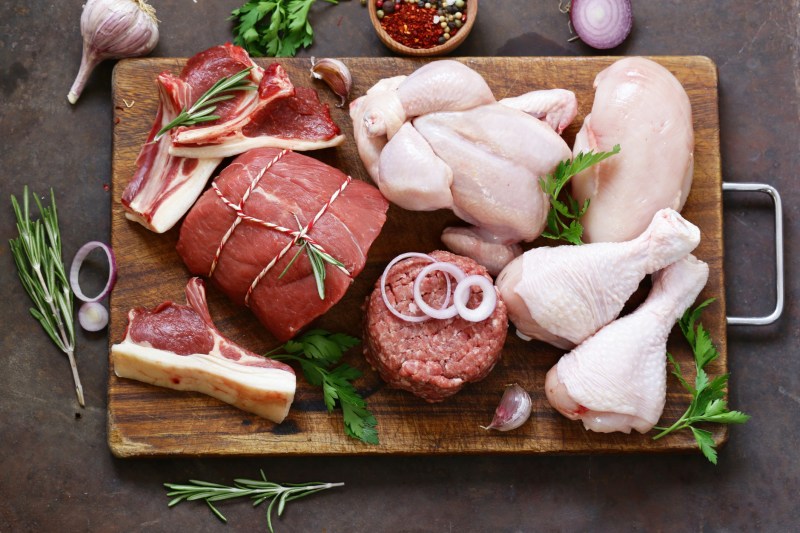
Meat and poultry are some of the best dietary sources of zinc. For example, a 5-ounce portion of chuck steak contains 15 mg (140% DV) of zinc and a roasted thigh and leg of chicken contains 5 mg. Lean pork chops are another good option for omnivores, as each 6-ounce pork chop contains 4 mg (36% DV) of zinc.
Tofu
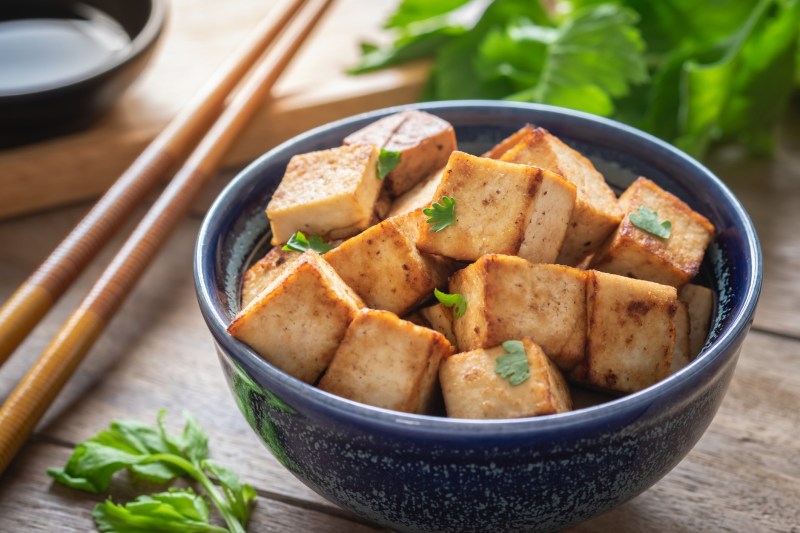
If you are a vegan or vegetarian, consider tofu. One cup of tofu provides 4 mg (36% DV) of zinc. Other soy products like edamame, tempeh, and the fermented Japanese favorite, natto, are also great dietary sources of zinc.
Lentils
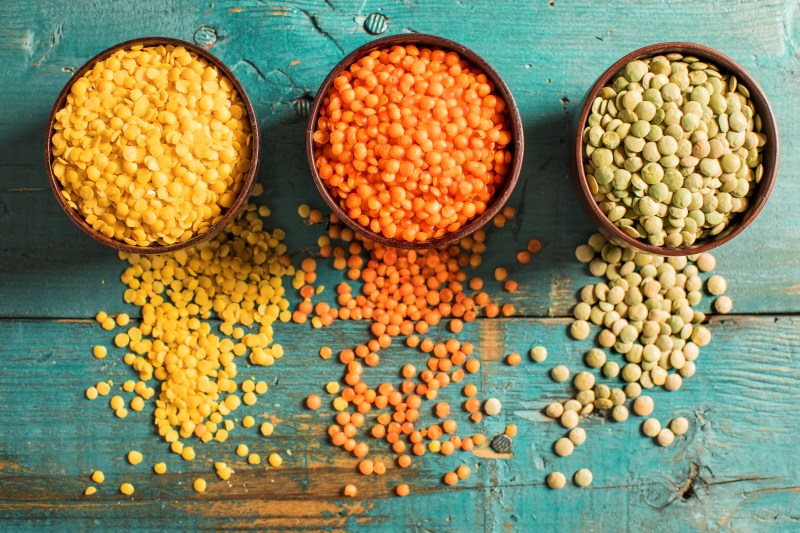
Legume lovers rejoice—lentils are packed with zinc, with 3 mg (26% DV) in each cup of cooked lentils. Whether you try making a hearty lentil soup for chilly weather or whip up vegan burgers with lentils, this nutritious legume can easily take on a variety of flavors and textures to suit your palate and dietary preferences. Other legumes like garbanzo beans, navy beans, black-eyed peas, and black beans also contain a lot of zinc.
Oatmeal
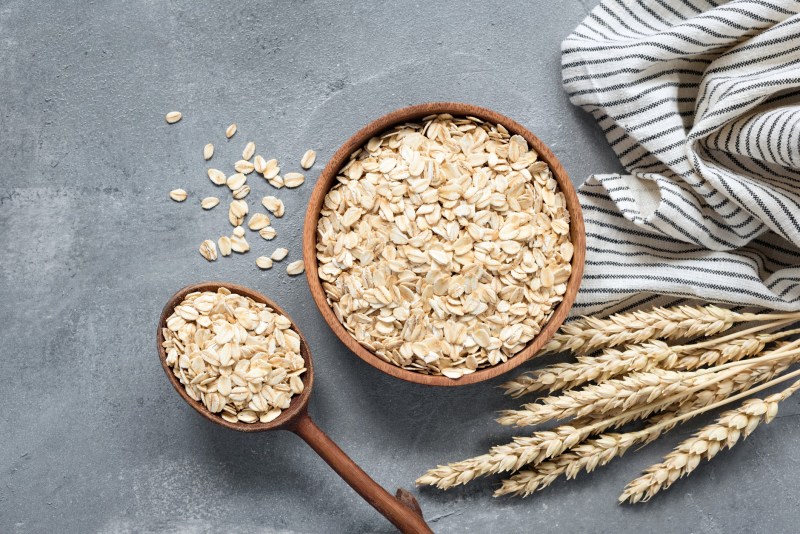
Start your morning during chilly winter months with a bowl of nourishing oatmeal. You’ll get 2 mg of zinc per cup along with nutrients like iron, B vitamins, and fiber. You can even sprinkle on hemp seeds for an added boost of zinc.
Yogurt
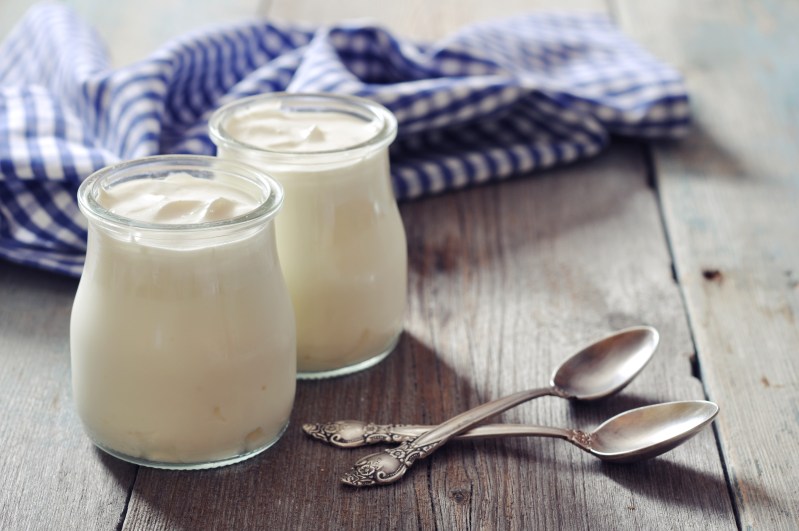
If you’re a fan of dairy, you can get 2 mg of zinc in your favorite cup of low-fat yogurt. Yogurt also provides gut-friendly probiotics, which aid digestion and support immunity. While yogurt is the best dairy source of zinc, milk and cheese also provide zinc. If you have trouble falling asleep, try having a bedtime snack of yogurt and berries or warm milk. In addition to zinc, calcium, protein, and other nutrients, dairy products like yogurt and milk also contain tryptophan, an amino acid that promotes sleep.
Seeds
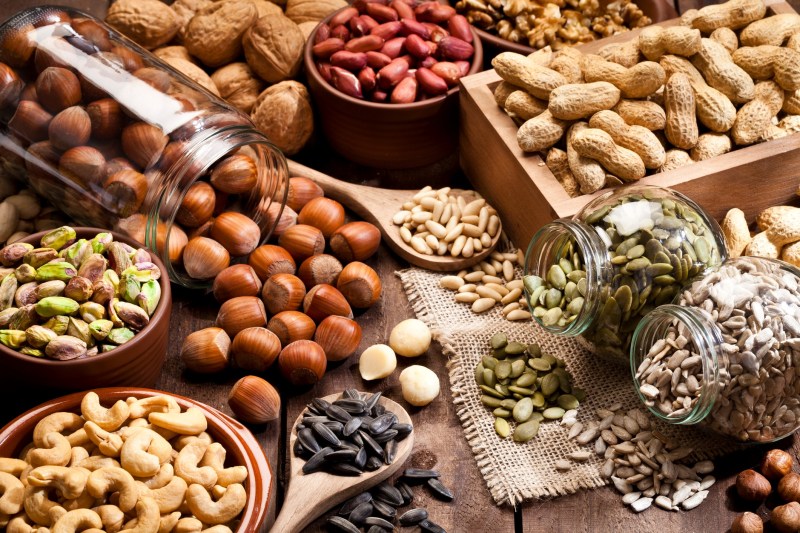
In addition to providing healthy fats, several types of seeds also contain zinc. Hemp seeds top the list, with one ounce providing 3 mg. Try adding hemp seeds to yogurt or salads. They also provide all nine essential amino acids and lots of fiber. Pumpkin seeds and squash seeds provide 2 mg of zinc per ounce. Other good options are chia seeds and flaxseeds.
Wheat Germ
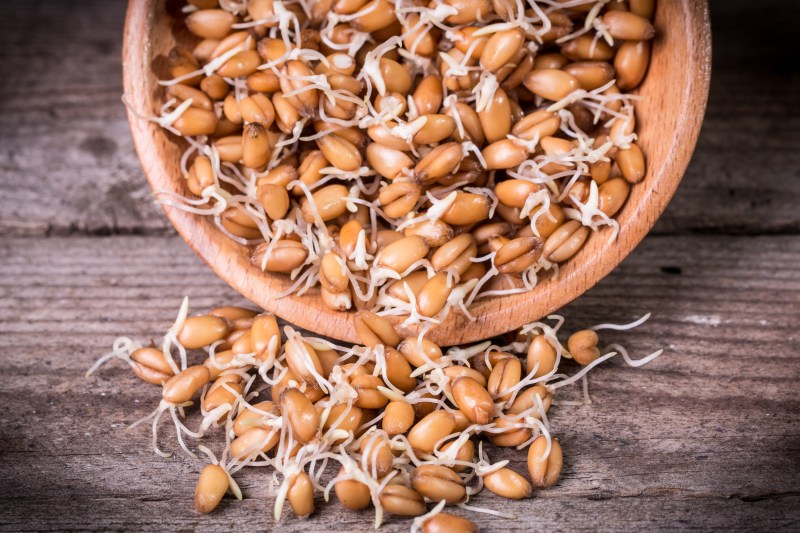
We don’t often think of adding wheat germ to the diet, but this nutrient-packed flaked portion of the wheat grain is actually pleasantly nutty. One ounce of toasted wheat germ provides 5 mg of zinc, which is an impressive 43% of the recommended daily value. Wheat germ also has healthy omega-3 fatty acids, vitamin E, fiber, B vitamins, and other minerals. Add it to granola, oatmeal, pasta sauces, breading for meat, salads, homemade protein balls, and even smoothies.
Mushrooms
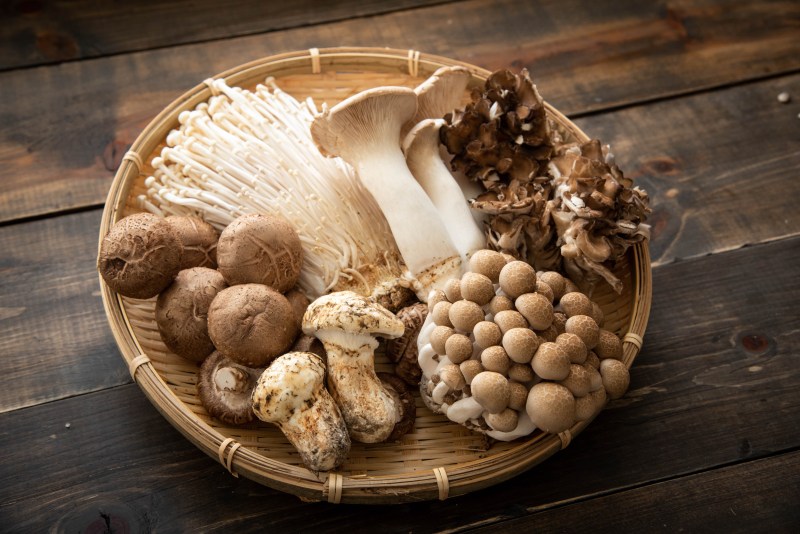
While most vegetables aren’t particularly high in zinc, mushrooms (which are technically fungi) do contain a decent amount of this essential mineral. Shiitake mushrooms are the best option, with each cup providing 2 mg (22% DV). White button mushrooms contain about half that amount but are still a good option due to their availability, versatility, and low price point.



